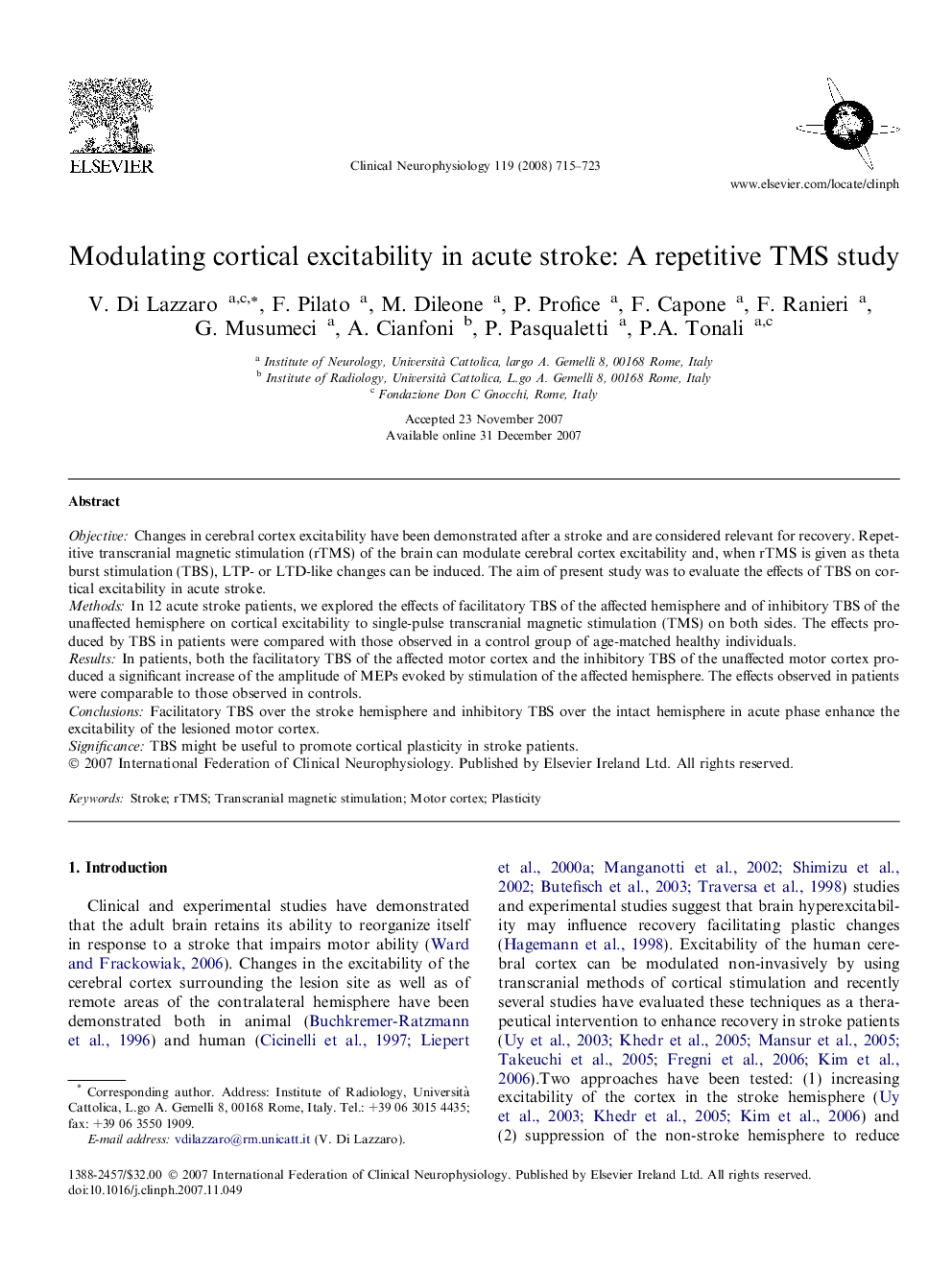| Article ID | Journal | Published Year | Pages | File Type |
|---|---|---|---|---|
| 3046606 | Clinical Neurophysiology | 2008 | 9 Pages |
ObjectiveChanges in cerebral cortex excitability have been demonstrated after a stroke and are considered relevant for recovery. Repetitive transcranial magnetic stimulation (rTMS) of the brain can modulate cerebral cortex excitability and, when rTMS is given as theta burst stimulation (TBS), LTP- or LTD-like changes can be induced. The aim of present study was to evaluate the effects of TBS on cortical excitability in acute stroke.MethodsIn 12 acute stroke patients, we explored the effects of facilitatory TBS of the affected hemisphere and of inhibitory TBS of the unaffected hemisphere on cortical excitability to single-pulse transcranial magnetic stimulation (TMS) on both sides. The effects produced by TBS in patients were compared with those observed in a control group of age-matched healthy individuals.ResultsIn patients, both the facilitatory TBS of the affected motor cortex and the inhibitory TBS of the unaffected motor cortex produced a significant increase of the amplitude of MEPs evoked by stimulation of the affected hemisphere. The effects observed in patients were comparable to those observed in controls.ConclusionsFacilitatory TBS over the stroke hemisphere and inhibitory TBS over the intact hemisphere in acute phase enhance the excitability of the lesioned motor cortex.SignificanceTBS might be useful to promote cortical plasticity in stroke patients.
